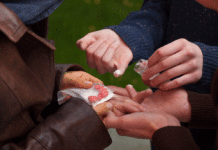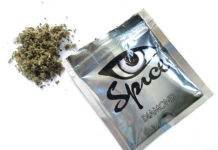- Neglecting responsibilities – Is a loved one caring less about school, flunking classes, declining in hygiene or avoiding parenting? If these characteristics are uncommon in your loved one, they could be alarming concerns.
- Misguided or reckless decisions – Keep a keen eye on changes that are irrational, out-of-character, or ill-guided. If drinking and driving is suddenly an option for your loved one, there’s likely a problem happening there.
- Legal troubles – This can range from excessive traffic violations, driving under the influence, or arrests for disorderly conduct toward police authorities.
- Relationship issues – This could be with family or a significant other. If there is a sudden disregard for loved ones, it could be a red flag.
These signs don’t always mean that a loved one is abusing drugs, but they could be characteristic of something that isn’t right. You’ll want to have an idea of what type of drug abuse your loved one might have. This guide will better help you when assessing your approach to helping them.
It may be marijuana if…
- They have glassy and bloodshot eyes. Look for irregular laughing followed by drowsiness and loss of motivation or interest.
- Sudden weight gain or loss is also common.
- Paranoia that seems to come out of nowhere.
- Lethargy or laziness.
It may be depressants such as Xanax and Valium if…
- They are in a drunk-like state with enlarged or shrunken pupils.
- Difficulty concentrating.
- Slurred speech and sleepiness may also occur.
It may be stimulants such as crystal meth and cocaine if… (continue reading)
Summary

Article Name
Is my loved one on drugs?
DescriptionA recent study by the University of Cincinnati revealed a startling fact: one in five Ohio residents know someone addicted to heroin. This alarming statistic doesn’t include the many other drugs causing addiction. In conjunction with 2016’s International Overdose Awareness Day, Ohio Attorney General Mike DeWine announced a new poster to help recognize the telltale signs of opiate addiction. The poster, titled “Drug Addiction Affects All Ohioans” listed several warning signs that may go undetected including small or pinpoint pupils, sudden dramatic weight loss, and rapid mood swings.
Author
Cesar Gamboa
Publisher Name
Addiction Now
















